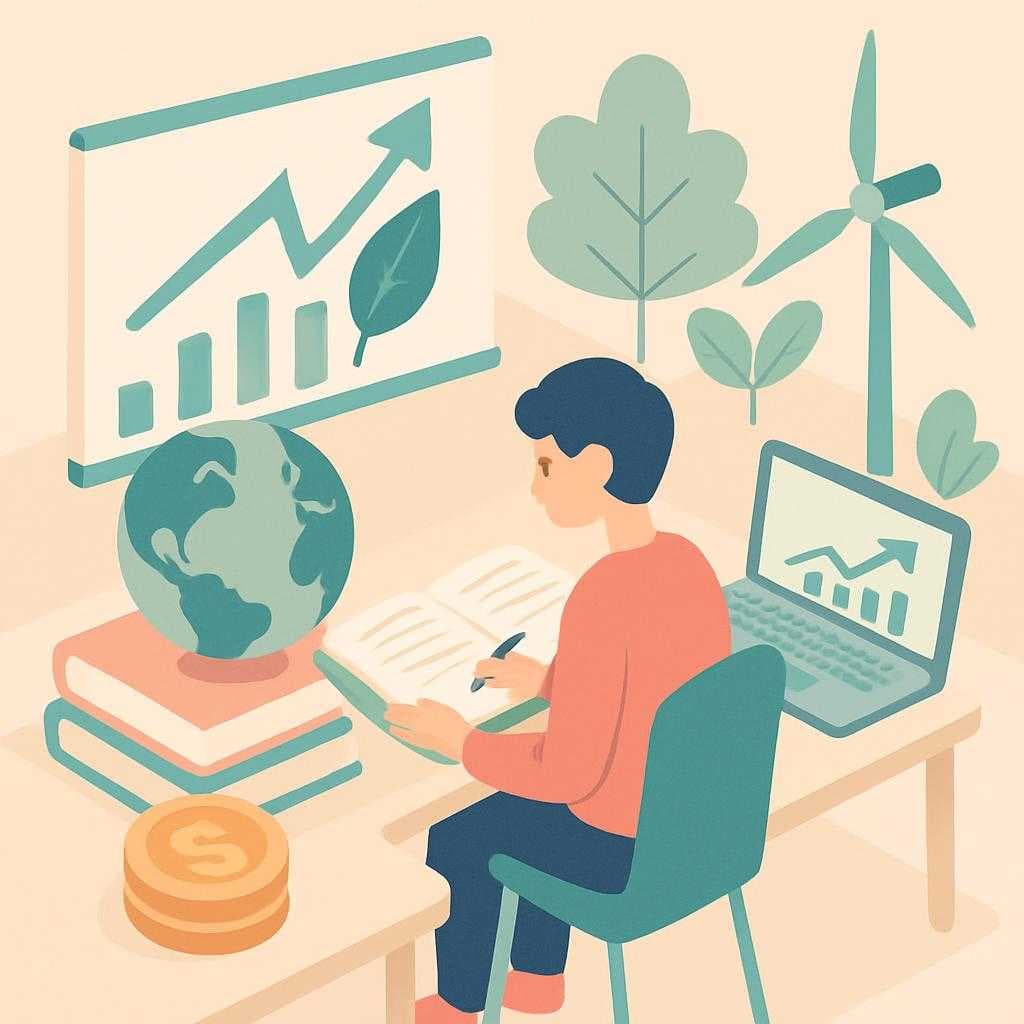The Economics of Sustainability: A GCSE Student's Guide to Understanding Green Growth
Summary: Dive into the fascinating world of sustainable economic growth with this engaging guide tailored for GCSE Economics students. Discover how understanding green growth can give you an edge in exams set by AQA, Edexcel, and OCR.
The concept of sustainability is no longer just a buzzword; it's a critical component of modern economics. As a GCSE Economics student in the UK, understanding the economics of sustainability can not only enhance your exam performance but also provide insights into real-world applications. With exams set by prominent boards like AQA, Edexcel, and OCR, grasping the intricacies of green growth is essential for success.
What is Green Growth?
Green growth refers to fostering economic development while ensuring that natural resources are used efficiently and responsibly. This concept emphasizes reducing carbon emissions, minimizing pollution, and promoting renewable energy sources. As you explore topics like supply and demand, market structures, and economic policies, integrating green growth perspectives can offer a fresh approach to your studies.
Why is It Important for Your Exams?
UK exam boards, such as AQA, Edexcel, and OCR, are increasingly incorporating sustainability-related questions into their exams. Understanding green growth can help you tackle questions on economic development, resource allocation, and environmental policies. For instance, you might be asked to evaluate the impact of government subsidies for renewable energy or analyze the trade-offs between economic growth and environmental protection.
Key Concepts to Master
-
Sustainable Development Goals (SDGs): Familiarize yourself with the United Nations' SDGs, particularly those related to sustainable economic growth, responsible consumption, and climate action. These goals provide a framework for understanding how economic policies can align with environmental sustainability.
-
Circular Economy: This concept involves creating closed-loop systems where waste is minimized, and resources are reused. Understanding the circular economy can help you analyze case studies and answer questions about resource efficiency and innovation.
-
Carbon Pricing: Learn about carbon taxes and cap-and-trade systems as tools for reducing emissions. These mechanisms are often discussed in exam questions related to market failures and government interventions.
Exam Tips
-
Use Real-World Examples: Incorporate current events and case studies related to sustainability in your answers. This will showcase your ability to apply theoretical concepts to practical situations.
-
Practice Past Papers: Review past exam papers from your specific exam board to identify patterns in sustainability-related questions. This will help you tailor your revision to likely exam topics.
-
Develop a Balanced Argument: When discussing green growth, present both the benefits and potential challenges. A balanced argument can demonstrate critical thinking, a skill highly valued by examiners.
By delving into the economics of sustainability, you can enrich your understanding of key economic principles while preparing for your GCSE exams. Embrace green growth concepts, and you'll be well-equipped to excel in your assessments and contribute to a more sustainable future.
